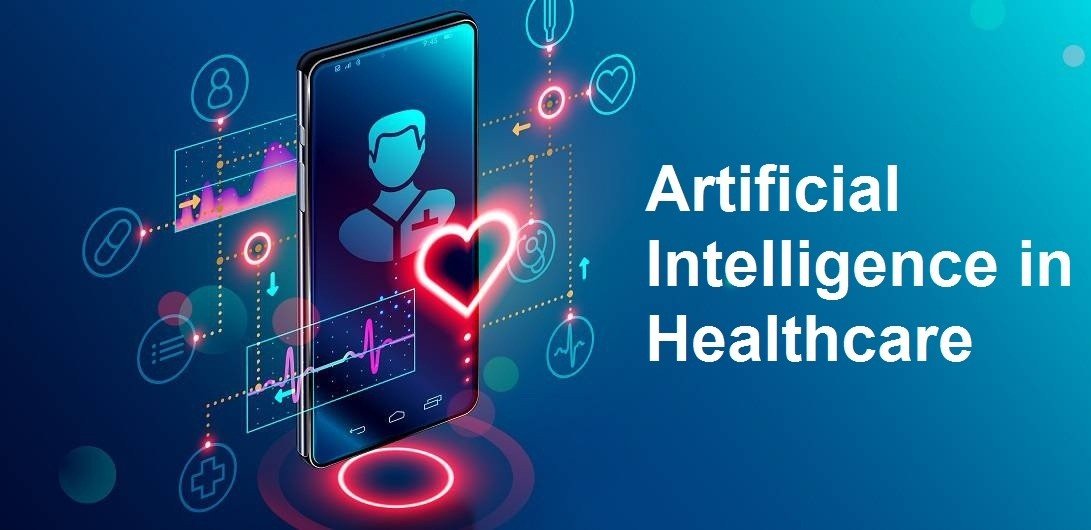The fast-paced change in medicine has been brought about either by biotechnology or AI, which are instigating the age of data-driven medicine and personalized care. Performing health care using machine learning, deep learning, and another subfield of AI, healthcare professionals are increasingly being given new tools to predict illness symptoms, provide individualized care, and optimize administrative processes. Here, the article looks at how artificial intelligence (AI) is acknowledged as the savior of the healthcare industry; it identifies its main applications while shedding light on patient outcomes and moral matters to be settled.
Transforming Imaging and Diagnostics:
The use of artificial intelligence (AI) in the analysis of medical imaging is being seen as a new innovation among medical experts. AI systems, which have gained knowledge and experience through extensive training using big data comprising millions of medical scans (MRIs, X-rays, etc.), are very accurate as they can spot very small anomalies and save time for physicians in making diagnoses. They are also helpful in early cancer detection, cardiovascular disease risk assessment, etc. AI systems also help to speed up image analysis, allowing for shorter turnaround times and the rapid identification of new treatment options. We have all been faced with the decision of when to provide CPR during cardiac arrest or other medical emergencies. Whether it be a training session or scenario-choice-driven, we are constantly reminded that we should begin CPR within one minute of the patient becoming unresponsive.
Precision Medical Aviation:
Artificial intelligence AI is giving a boost to precision medicine, as it is a specialized form of treatment where every patient is evaluated separately according to their unique genetic structures, lifestyle choices, and health records. AI algorithms can sort large datasets to spot genetic variations that lead to distinct diseases and predict the drug effect in people with the given variation. This particular personalized approach possesses great potency in the sense that it can counter the secondary effects and increase the efficacy of psychotherapeutic methods.
Efficiency-Boosting Administrative Automation:
AI has a significant ability to decrease bureaucratic work in the healthcare industry, leading not only to time savings for doctors but to the dedicated practice of medicine as well. AI-based systems help organizations enhance productivity while providing the medical staff with ample time to focus on the patients, as routine procedures are automated, such as insurance claim processing, scheduling appointments, report generation, statistical file generation, and referral management.
Proactive Care with Predictive Analytics:
AI is extremely good at spotting patterns and crazes in their abounding amounts of data. This warrants strong predictive health analytics tools in the healthcare sector, which can help identify if a patient is likely to contract certain diseases. icon-check-alt AI can easily identify people who are at high risk and refer those evaluated to certain preventive measures and early intervention by looking at their genetic data, previous medical records, and lifestyle behaviors.
Medical Services via Telemedicine:
AI helps provide telecare services by establishing remote consultations and monitoring the patient’s condition. With the use of AI technology such as chatbots, which can provide patients with information such as prescription reminders and symptom checkers around the clock, they can also facilitate automating the whole process of such things as healthcare issue detection through top-notch algorithms. This can mean that healthcare becomes less stringent and, therefore, even more accessible, especially for those living in deprived regions.
Medicine Discovery Advances:
The creation of new drugs, a time-wasting endeavor, is extortionate in terms of costs. The examination of exponentially larger molecule databases and structures will make AI systems faster than humans and speed up the drug discovery process. AI algorithms can be applied to select possible drug candidates with high efficacy and fewer adverse reactions. The time and money required for research and development until the product is approved for introduction to the market could be drastically cut due to this.
Improving Results for Patients:
It is AI in healthcare that delivers better results than people may seek. AI-driven solutions are allowing us to make clinical decisions that are much more accurate, enhancing patient survival rates through early diagnosis, health-conscious individual equilibrium regimes, and proactive care. Chatbots enabled by artificial intelligence may also train and support the patient throughout the journey, increasing their likelihood of self-care management.
Ethical Matters: The Act of Equilibria.
Medical care AI gives rise to some ethical debates that need to be answered. Because many things need to be considered, such as success, accuracy, algorithmic bias, and the probability of being laid off, people have to think more carefully while dealing with the health industry. It is vital to maintain public trust and murally sanction these technologies to ensure AI algorithms in healthcare have transparency, explainability, and fairness.
Medicine in the Future:
A Data-Driven Environment: AI adopts data as a core tool that moves medicine to an evidence-based practice, therefore reshaping it. AI will serve as the gateway to this vast amount of patient data that the health organizations of the healthcare system collect and store, which will in turn improve diagnosis, treatment plans, and the welfare of society by providing better healthcare. AI-powered, personalized health coaching chatbots, AI-driven surgical robots that further boost precision, and AI-powered virtual assistants that support doctors in clinical decision-making are not-so-good examples to represent medicine in the coming days.
Summary
In a nutshell, artificial intelligence is an issue that makes healthcare workers more efficient and broadens their knowledge and abilities. Healthcare may go on to build a targeted and data-fueled future in medicine, care customized to the individual, and better patient outcomes by harnessing the disruptive potential of AI. In the course of the emergence of AI, more ethical issues will appear, causing the necessity to develop principles of noble use and protection of people’s rights to create the age of AI when this technology will be effectively applied in the health sector and care sector, supporting medical workers and giving them the possibility to provide patients with the best medicine ever.

